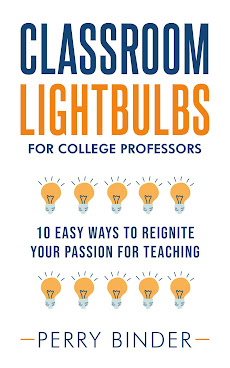An old lesson for a new year...
Presenting E.T.H.I.C.S.
(Elevating Trust Has Inspired Customer
Satisfaction)
© 2003-2017 Perry Binder
This article first appeared in Professional
Speaker magazine.
Reprinted: The Human Resource; ASTD
Atlanta Newsletter; Atlanta HR Leadership Forum; Atlanta CPCU Newsletter
Do any of these
statements ring familiar?
- In the old days, a deal
could be done on a handshake.
- A person's word used to be as good as gold.
- The bottom line has become more important than people.
I recently spoke before
a group of HR and insurance professionals about customers losing trust in their
industry. As the pressure to produce increases, the industry seems to cut
corners. Sadly, company communication is breaking down by ignoring the very
backbone of the industry, the loyal clients.
Discussing the topic of
ethics before a captive audience is a very delicate process. The presenter
must strike the appropriate balance between making the audience comfortable by
offering objective information in an energized and thoughtful manner, without
excessive preaching about the importance of ethical behavior.
I believe that each of
us has a strong moral compass which gets tested every day on the job. As a
presenter, if I can provide concrete examples to an audience of how unethical
behavior will adversely affect a company, I can then initiate a dialogue of
ethical dilemmas in any industry. My goal is to give participants a frame of
reference, not to instill ethical beliefs. By providing people with relevant
analogies, hopefully they will develop the tools needed to prevent any
unethical situations arising in a company setting.
I. The Erosion of Client Confidence
The recent explosion of bad faith lawsuits filed by dissatisfied customers is
evidence of an erosion in confidence:
- An insurance company's delay and denial of a homeowner's claim for cleaning up
toxic mold caused by a water leak led the client to sue the insurance company.
The result:
$6.2 million
compensatory damages
$12 million punitive
damages
$5 million for mental
anguish
$8.9 million in attorney
fees!!
- An insurance company's "No settlement stance" led a client to sue his automobile insurance company for bad
faith. The client had been in a car accident which led to the death of
one motorist, and disabling injuries to another. The company refused to
settle for the policy limits of $25,000, in spite of overwhelming evidence of
the client's fault in the accident. This led to a
jury verdict in excess of $25,000, thus exposing the client to personal
liability. The client then turned around and sued the insurance company
for bad faith.
The result: $2.6 million in compensatory damages and $145 million in punitive damages (The judge lowered the
jury;s award to "only" $1 million in compensatory damages, and $25 million in punitive
damages)
If the initial,
knee-jerk reaction of a company is to turn its back on a client, all of the
trust built over the years with that client is instantly lost.
Immediately, an adversarial relationship is created. It is the very
nature of confrontational environments which may plant the seeds of unethical
behavior.
II. Building Trust is the Key to Avoiding
Ethical Dilemmas
As a lighthearted
analogy, I use an Aesop's Fable, where two buddies (insurance
salesperson and client) are traveling together in the woods, when a bear rushes
out in front of them. On instinct, the salesperson grabs a tree branch
and climbs a tree, stranding the client. Ever resourceful, the client feigns
death, knowing the bear won't eat dead meat. After the bear sniffs
close to the client's ear, it eventually leaves the area. As
the salesperson climbs down the tree, he laughingly asks the client: "What did that big bad bear whisper?" The client
glares, then offers: "He said, never trust a friend who
deserts you in a pinch."
This issue of trust
permeates any discussion of company ethics. It is a message which must start at
the top, and is a number one priority in all company-customer
relationships.
III. Tips on Ethics Presentations for
Every Industry
1. An observation: The
role of the presenter is not to change peoples' minds about ethics - rather it is to give the audience a frame of reference with
examples of unethical behavior.
2. Start the session off
in a light manner, using a humorous story to make a larger point.
3. Never put audience
members on the spot. The topic of ethics is so sensitive, that the
facilitator must put no one on the defensive.
4. Remind the audience
about the good news: That most people in the industry have very strong
morals, and usually do the ethical thing.
5. Find specific cases
of extreme ethical violations in a particular industry. These examples
will generate discussion on how solid communication and trust might have
prevented an escalation of unethical behavior.
6. Give hope to audience
members. Remind them that special attention to the customer will slowly build
back any lost trust.
7. Consider a
presentation where audience members construct a brief, uniform Ethics Mission
Statement.
8. Emphasize that
employers must continually educate employees on company ethics. There are no
quick-fixes to such an important topic.
9. Have fun in any
presentation! (the most important lesson of all)
10. Remember
E.T.H.I.C.S. - Elevating Trust Has Inspired Customer
Satisfaction
Perry Binder, J.D. is a legal studies professor in Georgia
State University's Robinson College of Business in Atlanta, Georgia.
Professor Binder conducts seminars for large and small companies on a range of
topics, including social media ethics, litigation prevention, and sexual harassment/discrimination.













.jpg)